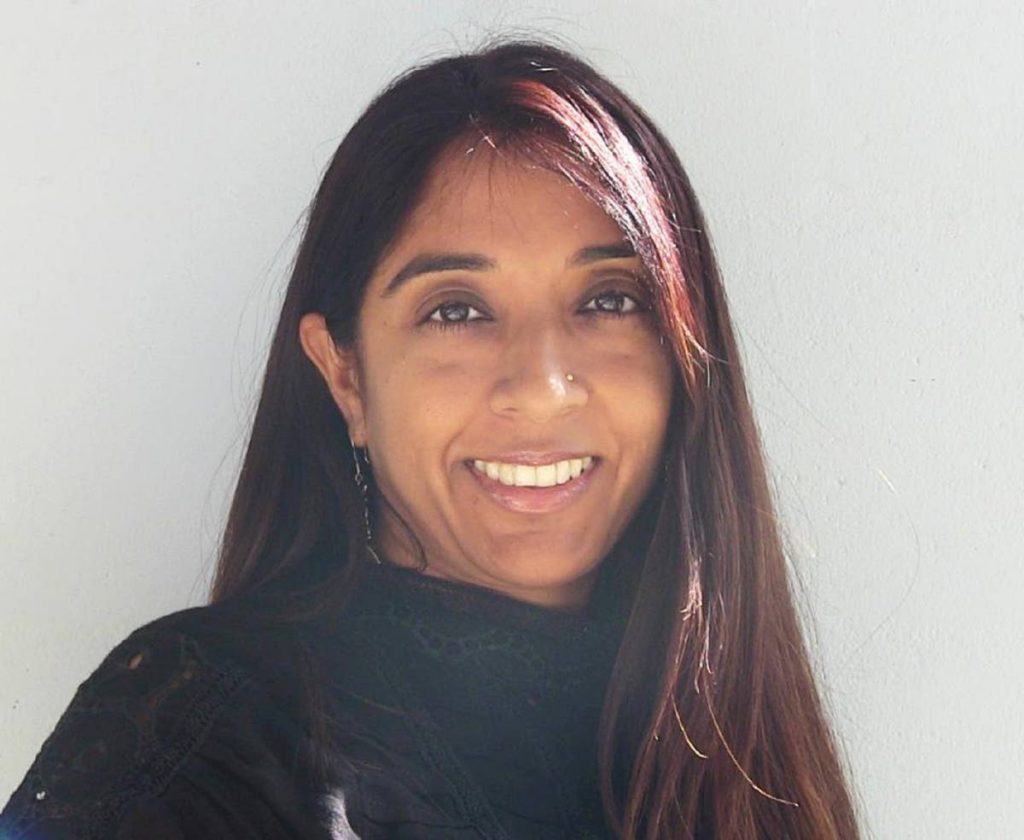Poetry – alive and hopeful

Diary of a Mothering Worker
Entry 332
motheringworker@gmail.com
DR GABRIELLE JAMELA HOSEIN
ON SUNDAY, in front of an audience of over a thousand, three young women topped the annual First Citizens National Poetry Slam Final for the first time in eight years.
Remember their names, for often we don’t remember our own poets, despite poetry’s power to save lives, inspire action, and document history as it is being lived.
Alexandra Stewart, whose piece last year represented the voice of our planet advocating for ecological conservation, placed first this time. I thought she well deserved the big prize of $50,000. She was my choice of winner for her poem had a clear message, didn’t over-use rhyme, felt authentic, was well-paced, kept within time, and showed straight up good writing and delivery.
Ironically, it was about the disrespect shown to poets when they are asked to perform for free, or for less than they need to even make ends meet. This is real and all artists in TT can relate to budgets that include all the costs, but none for musicians and poetry. Her delivery kept it to the point. Artists also have to eat.
Earning second place, Shineque Saunders presented an emotional piece about being separated from her mother who migrates to help her family survive. Shineque played her mom’s different voices in creative ways, creating a British accent and different name for the woman who migrated and a “Trinbagonian” accent for the one who remained, eventually bringing the stories of the two together to highlight the sacrifices mothers make again and again for their children. It spoke to a common reality for many today and Shineque represented it confidently with both drama and flow.
Finally, Deneka Thomas, last year’s winner, placed third with a poem about the character of La Diablesse, showing us how rape can turn women into supposed-monsters. La Diablesse’s typical characterisation as seducer of men isn’t just a story of sexuality and danger, but also one of negotiating power out of sexual violence and trauma, one we little hear because this character has remained so demonised and yet so silent in folklore. Redeeming such voices, through the style and play Deneka brought, is a feminist act of turning words to power.
As a younger generation stepping in where Paula Obe, Lisa Allen-Agostini, Dara Njeri, Carol Hosein, Ivory Haynes and other young women once also held stage lights, it’s brilliant to see young women nurtured by the 2 Cents Movement and, soon coming out of the school tours, setting the standard for spoken word on stage.
The story of young women championing at performance poetry has reasons for capturing our attention. The stage in the Caribbean has always been male-dominated, the lyrics “man” is still a resilient archetype, and so many women who have carried the spoken word movement over these last decades and their very names have disappeared from its history.
Spoken word spaces have always been progressive, with young men also advocating an end to violence, speaking about tumultuous or disappointing relationships with their fathers, highlighting child sexual abuse, and analysing poverty and injustice and much more. Yet, these are also spaces where young women can point to continuing politics of male privilege and the resilient nuances of a boys’ club.
On and off stage, there’s a story of women’s experience as performance poets that remains to be negotiated, transformed and told. That they exist in a community of young men also willing to challenge patriarchal religious authority, ego and silence speaks to the potential of another generation to right earlier wrongs.
The National Poetry Slam is a gathering of another generation’s politics and vision. It’s a gayelle of their lyricism. It feels youthful and fresh and leaves you feeling, not just alive, but hopeful that others out there care enough about the world to put its challenges to pen and then to perform their call at a microphone.
As part of the wider NGC Bocas Lit Fest week of readings from poets and writers of all kinds, it’s a signal that out there, regardless of your class or sex or sexual orientation or age or race, all you need are words and, like one of those from among us who have been published or are young veterans of the stage, you too can write.


Comments
"Poetry – alive and hopeful"